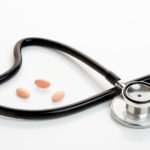By Bonnie Jenkins, Advanced Natural Wellness
Nearly everyone knows that having high cholesterol puts you at an increased risk of developing heart disease. And, if you are a long-time reader, you also know the risks of using statin drugs like Lipitor or Crestor. The good news is that, unless your total and LDL (bad) levels are through the roof, you may be able to lower your cholesterol simply by eating certain foods.
A new report from researchers at Harvard Medical School points to the most effective foods in your supermarket. But they don’t all work in the same way. Some deliver soluble fiber, which binds to cholesterol and shuttles it out of the body. Others provide polyunsaturated fats, which directly lower LDL. And some contain plant sterols and stanols, which block the body from absorbing cholesterol.
Top 9 Cholesterol Busters
Oats. Having a bowl of oatmeal for breakfast gives you 1 to 2 grams of soluble fiber. Current guidelines recommend getting 20 to 35 grams of fiber a day, with at least 5 to 10 grams coming from soluble fiber. (The average American gets about half that amount.)
Barley and other whole grains. Like oats, barley and other whole grains can help lower the risk of heart disease, mainly via the soluble fiber they deliver.
Beans. Beans are especially rich in soluble fiber. They also take awhile for the body to digest, meaning you feel full longer. And they are an affordable source of protein.
Eggplant and okra. These two low-calorie vegetables are good sources of soluble fiber.
Nuts. A bushel of studies shows that eating almonds, walnuts, pistachios, and other nuts is good for the heart. Eating two ounces of nuts a day can lower LDL about five percent. Nuts have additional nutrients that protect the heart in other ways.
Apples, grapes, strawberries, citrus fruits. These fruits are rich in pectin, a type of soluble fiber that lowers LDL.
Foods fortified with sterols and stanols. Sterols and stanols block the body’s absorption of cholesterol. You can also get these plant-based cholesterol reducers in supplemental form. Getting 2 grams of plant sterols or stanols a day can lower LDL cholesterol by about 10 percent.
Are You Suffering From...
- Love handles and a pot belly
- Romance that isn't what it used to
- Forgetfulness and inattention
- Low (or no) strength and endurance
- A sex drive that's shifted into neutral...or worse
If so...you may have Mature Male Burnout. Click here to discover more about this unique condition and what you can do about it.
Soy. Eating 25 grams of soy protein a day (10 ounces of tofu or 2½ cups of soy milk) can lower LDL by about five percent.
Fatty fish. Eating salmon or other fatty fish two or three times a week can lower LDL in two ways: by replacing meat, which has LDL-boosting saturated fats, and by delivering LDL-lowering omega-3 fats. Omega-3s also reduce harmful triglycerides. Don’t like fish? Opt for a daily dose of 3,000 mg. of fish oil supplements instead.
Out With The Bad
It isn’t just what you eat that contributes to a healthy cholesterol profile, it’s also what you don’t eat. Harmful LDL creeps upward and protective HDL drifts downward largely because of diet and other lifestyle choices. Here are some steps you can take:
Saturated fats. One way to lower your LDL is to cut back on saturated fat. Try substituting lean ground turkey for beef, low-fat or skim milk for whole milk, olive oil for butter and baked fish or chicken for fried.
Trans fats. Trans fats boost LDL as much as saturated fats do. They also lower protective HDL, rev up inflammation, and increase the tendency for blood clots to form inside blood vessels. The Institute of Medicine recommends getting no more than 2 grams of trans fats a day, but the truth is, there are no safe levels of this killer fat.
Weight and exercise. Being overweight and not exercising affect fats circulating in the bloodstream. Excess weight boosts harmful LDL, while inactivity depresses protective HDL. Losing weight if needed and exercising more can reverse these trends.
References:
Attia-Skhiri N. Trans fatty acids: effects on lipoprotein metabolism and cardiovascular risk. Annales de Biologie Clinique (Paris). 2009;67:517-523.
Racette SB. Dose effects of dietary phytosterols on cholesterol metabolism: a controlled feeding study. American Journal of Clinical Nutrition. 2009 Nov 4. [Epub ahead of print]
Talati R. The effects of barley-derived soluble fiber on serum lipids. Annals of Family Medicine. 2009;7:157-163






